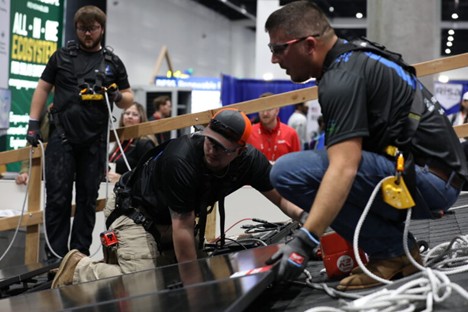Ohio governor vetoes anti-renewables energy bill
Ohio, the home state of Solar Builder, is laughably behind a lot of the country in terms of renewable energy adoption (we are sure to start all of our leads about Ohio solar with this editorializing note). The situation was on track to get much worse until Gov. John Kasich vetoed Substitute House Bill 554. The bill would have further weakened the state’s energy standards by turning the requirement for utilities to purchase renewable energy and invest in energy efficiency into voluntary goals, with no compliance obligations, through 2019. With Governor Kasich’s veto, the standards frozen two years ago are set to be reinstated on January 1, 2017.
The news drew immediate praise from renewable energy groups:
“I applaud Gov. Kasich for showing true leadership and vetoing this bill. HB 554 is a sloppy piece of legislation that could increase electric bills and clog our air with pollution while hampering innovation and job growth,” said Heather Taylor-Miesle, Executive Director for the Ohio Environmental Council Action Fund. “We urge legislators to follow Gov. Kasich’s lead and allow Ohio’s clean energy potential to be unleashed.”
“Today, Governor Kasich’s principled leadership has given Ohio an opportunity to get back on track. He stood behind his commitment to renewable energy and energy efficiency, allowing Ohio to regain its competitive advantage nationally,” said J.R. Tolbert, vice president for state policy at Advanced Energy Economy (AEE). “Governor Kasich understands that renewable energy and energy efficiency create jobs and save money. That’s a formula that is good for business and good for every Ohioan.”
“The two-year freeze has cost Ohio jobs and investments. In the last three years, while Ohio has been idling, Michigan has attracted over $1.1 billion in renewable energy investments,” said Ted Ford, president of Ohio Advanced Energy Economy (Ohio AEE). “With this veto, Ohio can begin to move forward with sensible energy policy next year – one that can bring back advanced energy jobs and investment to Ohio.”
The legislature could override the governor’s veto with a three-fifths majority vote, but fell short of this vote threshold when Substitute HB554 passed the House (final vote was 56-41) and Senate (final vote was 18-13).






Comments are closed here.